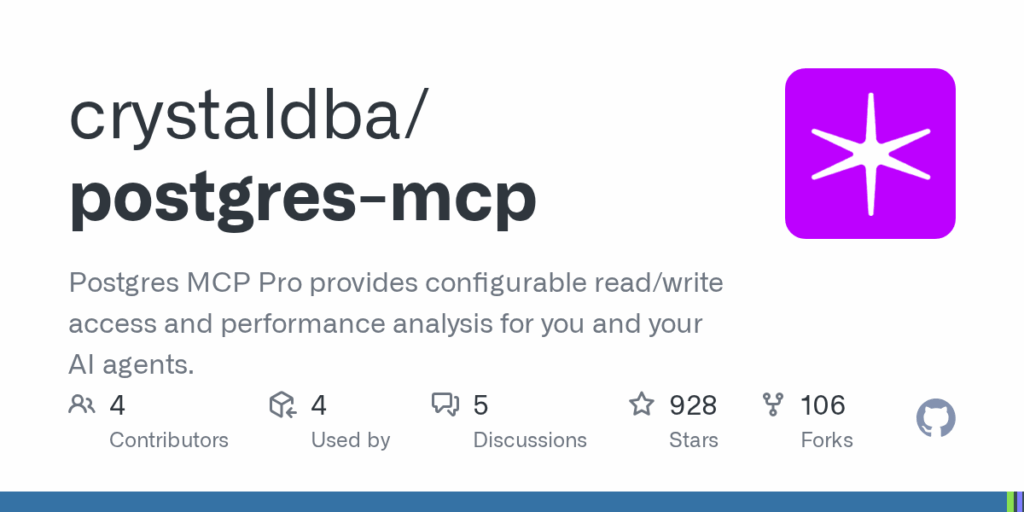postgres mcp
Basic Information
Postgres MCP Pro is an open source Model Context Protocol (MCP) server that exposes Postgres database capabilities to AI agents and developers throughout the development lifecycle. It is designed to do more than provide a simple database connection by offering deterministic, procedural tools for health checks, index tuning, query explain plans, schema inspection, and controlled SQL execution. The server supports both standard input/output and Server-Sent Events transports so it can be used with a variety of MCP clients. It can run via Docker or as a Python package and is intended to integrate with MCP-capable assistants to enable safe, context-aware SQL generation, workload analysis, and simulated index evaluation. Configuration supports unrestricted and restricted access modes and it can leverage Postgres extensions such as pg_stat_statements and hypopg for workload and planner simulation.








